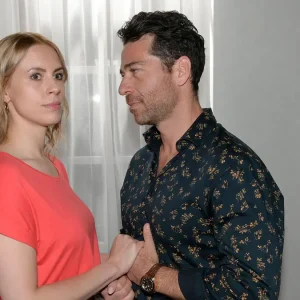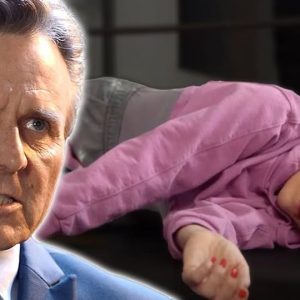Schock! Laura Maria Rypa’s bombshell announcement has sent shockwaves through the “Gute Zeiten” universe and beyond. Forget the fairytale wedding, the meticulously planned ceremony, the designer dress – none of it’s happening. In a heart-wrenching reveal that leaves viewers reeling, Laura Maria publicly declares the engagement with Pietro Lombardi is OFF. This isn’t just a simple postponement; it’s a complete and utter shattering of their seemingly unshakeable relationship. The carefully curated image of perfect love crumbles before our eyes, replaced by a raw, agonizing truth.
The “schockierende Wahrheit” is far more complex than a simple disagreement or a lovers’ tiff. The film dives deep into the emotional turmoil plaguing both Laura Maria and Pietro, revealing cracks in their foundation that had been cleverly concealed from public view. We witness intimate scenes that expose simmering resentments and fundamental incompatibilities, hinting at underlying pressures that neither could successfully navigate. The idyllic romance we’ve all been witnessing – the public appearances, the social media posts dripping with affection – turns out to be a meticulously constructed facade.
The movie doesn’t shy away from exploring the immense pressure Laura Maria faced. The weight of expectation, fueled by the relentless scrutiny of the public eye and the demanding nature of their celebrity status, proves overwhelming. We see her struggling to reconcile her personal desires with the manufactured image she’s been forced to maintain, leading to a heartbreaking internal conflict. The film subtly suggests a growing sense of isolation, a feeling of being trapped within the confines of their public persona. Her meticulously crafted social media presence, previously a symbol of their happiness, becomes a stark reminder of the chasm between reality and perception.
Pietro, too, is revealed to be a complex character grappling with his own demons. The film suggests that his past experiences and the constant demands of his career have left him emotionally unavailable, undermining the foundation of his relationship with Laura Maria. While initially appearing charming and devoted, deeper issues emerge, culminating in pivotal scenes that expose his shortcomings and the fundamental disconnect between their needs and expectations. We see his attempts to reconcile with Laura Maria, his genuine pleas for understanding, yet the damage is done, the trust irrevocably broken.
The ultimate revelation is not a single, cataclysmic event but rather a culmination of smaller, deeply affecting moments. The film doesn’t apportion blame solely to one party; instead, it portrays a tragic failure of communication and a devastating mismatch of personalities. It’s a cautionary tale about the pressures of fame, the illusion of perfection, and the importance of honesty and self-awareness in a relationship. The ending is neither neat nor tidy; it leaves viewers with a sense of melancholy and a lingering question about the true nature of love in the public eye. The break-up is not presented as a villainous act, but a consequence of deeply ingrained issues and unresolved conflicts. The film forces us to confront the harsh realities behind the glamorous veneer of celebrity life and to question what we truly see on our screens. Ultimately, “Gute Zeiten” leaves us pondering the true cost of fame and the fragility of even the most seemingly perfect love stories.





